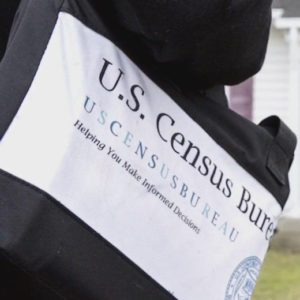Our democracy depends on facts and data — and right now, it’s under threat. There is no understating how incredibly important the census is. It all boils down to money and power.
That is why the Trump administration, since the first week in office, has tried to skew the 2020 census count.
The requirement for the census is right there in the Constitution: the government has to do an “actual Enumeration” every 10 years. Not a guess. Not an estimate. Not some type of statistical inference.
Every 10 years, an “actual Enumeration” must be done before determining how many members of Congress will represent each state and how trillions of dollars in federal resources should be allocated. The United States has been performing that actual Enumeration since 1790.
But this is 2020. COVID-19 hit the headlines just as the Census Bureau started its field operations.
The bureau originally planned to send thousands of temporary workers door-to-door, getting information from households that had not responded to surveys online, by mail or by phone. There were also field programs to count: college students; people living in remote Alaska; people living in campgrounds, people living in nursing homes, correctional facilities and other institutions; and people experiencing homeless.
All of these programs were put on hold.
In mid-April, Secretary of Commerce Wilbur Ross asked Congress for a four-month extension of deadlines for completing the 2020 census.
In mid-May, the U.S. House of Representatives approved that four-month extension, as part of its HEROES Act. The bill also included $400 million in extra funding for COVID-related changes to census operations.
But with 2020 Washington mired in partisan politics, the HEROES Act went nowhere in the Senate. None of the other bills that would extend census deadlines have been passed by the Senate.
In early August, the Census Bureau reversed course. Under the newest plans, the apportionment data would be released by December 31 — so that the Trump administration would oversee the determination of how many congressional seats each state will have for the next 10 years, regardless of whether he is re-elected.
Why does this matter? It’s a problem because the Census Bureau wants to end its count on September 30 — and more than 11 million housing units (8 percent) still have not been surveyed.
It’s a problem because there are massive differences in uncounted units from state to state, with states like Illinois, California and Massachusetts about 95 percent counted; while states like Alabama, Montana, Mississippi and Georgia are all less than 85 percent counted.
It’s a problem because the newest plans would “reduce accuracy” and create a “risk for serious errors not being discovered” — according to internal Census Bureau documents released by whistleblowers.
But the biggest problem is that many Americans no longer trust the Trump administration on anything having to do with numbers or science — whether it’s COVID-19 counts, climate change or even weather forecasts.
The context of this most recent scaling back of the time enumerators are in the field knocking on doors to achieve an accurate count does nothing to encourage trust in the apportionment numbers.
In July, Trump issued a memo that ignores the Constitution and orders the Census Bureau to manipulate the numbers, to remove people his administration deems to be undocumented immigrants. That data manipulation would change how congressional seats are allocated — adding or reducing the number of representatives for several states.
Common Cause and others have filed lawsuits pending to prevent this.
Similarly, if the Census Bureau stops counting prematurely, states that are already almost completed and have accurate data could benefit, while other states could be harmed. Florida, for example, is only about 87 percent counted — which means there could be millions of people who aren’t included in the current data.
Florida’s number of congressional seats could be affected by whether those people are included in the Census numbers that are used for apportionment.
There are many reasons Americans may question this year’s census count.
Not only has the Trump administration already, unsuccessfully, tried to manipulate the numbers but it also unexpectedly added two political appointees to Census Bureau management in late June, and added a third appointee last month. It has reversed course on the need for an extension of deadlines.
It has failed to produce documents ordered by a judge in a census-related lawsuit.
Stopping the count early will add significantly to that doubt.
These are the numbers the Constitution entrusts with determining our congressional representation and allocation of federal funds. If we don’t have confidence in the numbers, how can we have confidence in how congressional seats and tax dollars are allocated?
The actual Enumeration needs to be completed, as the Constitution requires.

